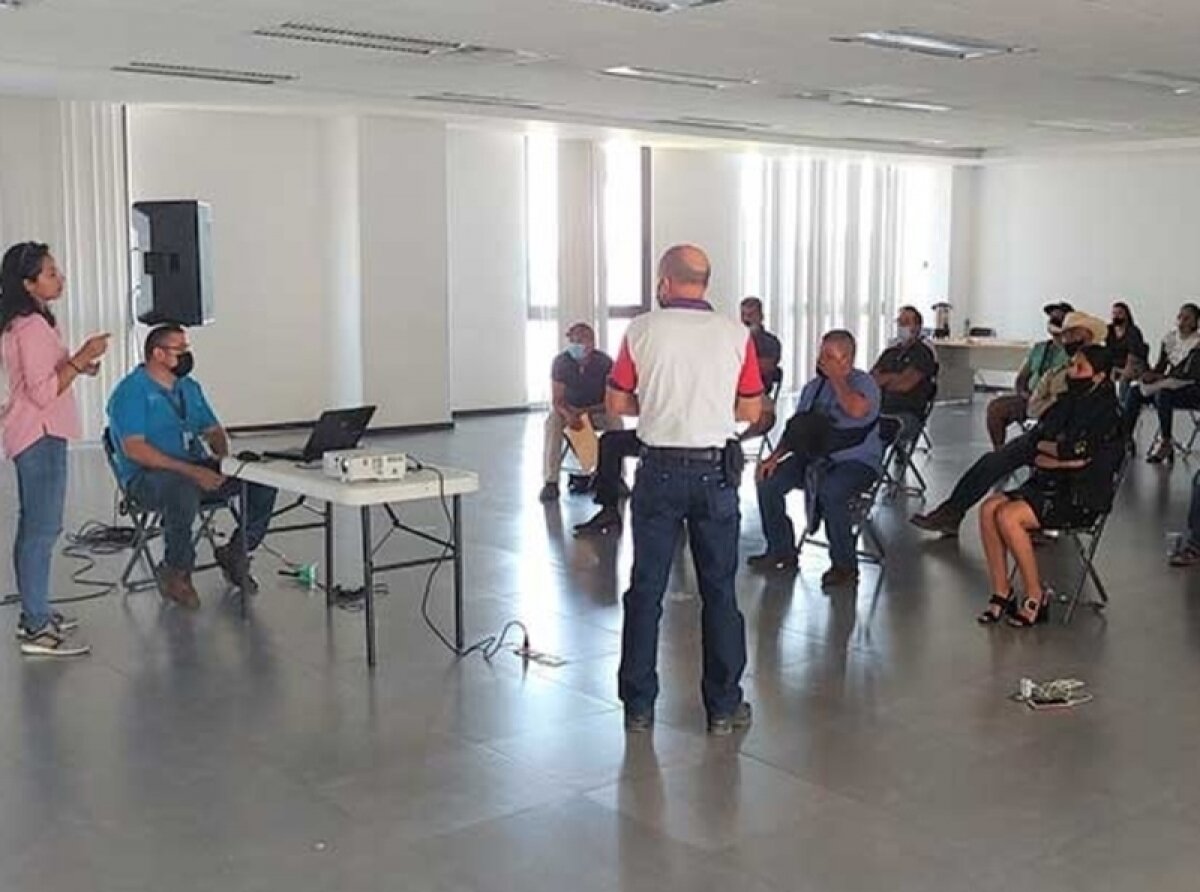In the 1st ordinary session of the year, progress and proposals on priority public health issues for 2021 were presented to the State Health Council, the advisory body on health matters of the state.
This morning the first ordinary session of the State Health Council, the highest advisory body on health matters of the State, was held presenteing the progress and proposals on priority public health issues for this 2021, enacted since the first months of the year.
The agency approved agreements to promote and reinforce prevention and care actions against the risk of dengue outbreaks, to strengthen the vaccination process against COVID-19, whose goal according to the National Plan is to immunize 4 million inhabitants of Jalisco, the prevention of diseases and health risks in the localities bordering the Santiago River, advance in the creation of the State Registry of Kidney Diseases, and improve the response to care for victims of gender violence.
The head of the Jalisco Health Secretariat (SSJ), Fernando Petersen Aranguren, president of the Council, welcomed the representatives of the institutions of the Health Sector and the Medical Services of the municipal governments present, as well as the General Strategic Coordinator of Social Development of the Government of Jalisco, Anna Bárbara Casillas García as special guest of the meeting.
The General Director of Prevention and Health Promotion of the SSJ, Ana Gabriela Mena Rodríguez, presented the Situation and Outlook of Dengue in Jalisco 2021, which to date maintains a significant reduction compared to the two previous years.
“In 2020 Mexico reported 120,639 cases of dengue, which represents a decrease of 55% in relation to 2019 (268,458.) The four serotypes of the dengue virus are present in the Americas, Brazil, Colombia, Guatemala, and Mexico; and simultaneous circulation of the 4 serotypes was recorded,” reported the director, after detailing that serotype 2 predominated in Jalisco, which is an aggressive virus.
Mena Rodríguez highlighted that in Jalisco the reduction of cases and deaths was achieved by up to 78% compared to 2019, thanks to intersectional, municipal, and community participation to eliminate the main focus of the disease, which are the mosquito breeding sites.
Various actions were carried out to inform and guide the population and join them in the fight against dengue, such as the App Without Dengue, an application for IOS and Android mobile devices. The call center number is 33 3823 3220, and provides information and guidance on COVID-19 and dengue. The microsite listed at the end of this article provides information on this infection, the epidemiological panorama in the state, and answers to frequently asked questions and myths about the disease is expanded.
The official presented the strategy for the Prevention and Control of Dengue in 2021, which includes entomological surveillance actions in priority localities, and continues with the promotion and actions that favor homes and environments free from breeding sites, and the elimination of the breeding sites. She also proposed to strengthen epidemiological surveillance and notify probable cases in order to provide timely medical attention and carry out early intervention that limits infections.
The Secretary of Health especially thanked the municipal governments for their work in the fight against dengue, and for supporting the coverage of thousands of homes and environments. Likewise, he suggested not to lower our guard against the reduction of cases, but on the contrary, to reinforce actions aimed at preventing outbreaks.
VACCINATION AGAINST COVID-19
In the session it was reported that Jalisco is currently in 27th place at the national level for confirmed COVID-19 cases (247,853 until yesterday,) and that the State Government has already submitted to the federal authorities the request to adopt a model to speed up the vaccination process against the coronavirus.
Mena Rodríguez explained that since January 12, 2021, when the first vaccines against COVID-19 arrived in the entity, until last May 6, in Jalisco 1,549,465 doses of vaccines have been received from four pharmaceutical companies; Pfizer -BioNTech (44%,) AstraZeneca (16%,) Sinovac (15%,) and CanSino (24%.) This has made it possible to protect the most vulnerable sectors of the population; health personnel, people over 60 years of age, and personnel of the education sector.
The official emphasized that the Operation and Implementation Model to vaccinate against COVID-19 to the following population groups in Jalisco, proposes to implement only macro modules for the application of the vaccine, the electronic appointment mechanism, the semaphore system of flags in vaccination points, and coordination for data capture.
GENDER VIOLENCE
In this matter, Otilia Bibiana Domínguez Barbosa, state coordinator of the Gender Violence program of OPD Servicios de Salud Jalisco, recalled that the entity currently has two mechanisms for Alert of Gender Violence against Women (state and federal,) and a state plan of follow-up, which provides medical care with a gender perspective to people involved in situations of violence and sexual violence against women. The program seeks to restore health to the maximum extent possible, through physical and mental treatment, rehabilitation, or referral to specialized bodies.
In this vein, it was proposed to resume the training and sensitization of health personnel in direct care for victims and to establish a commission to review criteria and guidelines that contribute to the application of laws and regulations.
SANTIAGO RIVER
The progress and actions carried out corresponding to the "Healthy Citizenship" axis contained in the Revive Río Santiago Plan were also presented. The director of Planning and Sectorial Evaluation of the SSJ, Arturo Múzquiz Peña, stressed that for the State Government said plan is a priority and has not stopped carrying out transversal actions with the aim of mitigating the sources that generate the ecological, environmental, social, and public health of the area.
"Early detection of kidney damage is carried out by the State Government and the Municipal Government of Poncitlán through screening," he pointed out. At the end of December 2020, more than 2,000 minors between the ages of 5 and 15 were included in the study, with follow-up of patients with suspicious results. At the same time, a pediatric nephrologist was commissioned to the Health Center of the town of San Pedro Itzicán (Poncitlán municipality) for patient care.
The institutions of the State Health Council approved to reinforce the actions to protect the health of the eligible inhabitants residing in the 16 municipalities of the Santiago River Basin and the Chapala Lake Bank through prevention measures and early detection of diseases, timely diagnosis, quality family medical care (at the first level) close to the place where they reside, and the assessment for the hiring of a nephrologist in the intervention area, with a presentation of the advances that are had in this regard in the next session of the council.
It was also approved to grant to the Ministry of Health the nominal database of the eligible population with a diagnosis of chronic renal failure (CRF) and cancer, for its integration into the State Registry of Renal Disease and State Cancer Registry, respectively.

